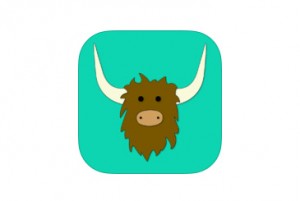
by Samantha Lund, News Editor
Yik Yak is turning into today’s anonymous “Burn Book” of Pacific Lutheran University, opening the gateway to cyber bullying on- and off-campus.
Yik Yak came into app stores in November 2013. The app allows people to post anonymously without registering with any organization, such as Twitter or Facebook. Users can read other users posts, or “Yaks” within a 5-mile radius, as determined by a smartphone’s GPS location.
Until recently, Yik Yak charged people to use their technology. Now that the app is free, the number of “Yakers” has skyrocketed. Sex, drugs, alcohol, parties and confessions of love can all be found in the PLU zone of Yik Yak. The app has no administrators looking over each post to check for bullying, making the app an open market for anyone to say anything they want.
One of Yik Yak’s terms of use is to not use the app for bullying purposes, but that rule seems to have very little effect on the users.
“I think it is nice when you use it for its purpose like confessions and to get stuff off of your chest,” junior Kerri Stelk said. “But I think most people use it as a way to anonymously bully other students without repercussions, which is sad.”
Anonymous posts such as, “Those jeans you were wearing on Foss Field? No.” and “Dear girls in the Harstad basement, Shut Up. No one cares about your jeans and no one wants to hear you cackling. It’s not Halloween, stop sounding like a witch,” can be found daily on Yik Yak.
“I think it’s really just a new alternative to pages like PLU Confess or PLU Compliments,” senior Allison McClure said, “But overall, I’ve been a little disappointed at the racist, homophobic and general bullying vibe that is prevalent with Yik Yak.”
“If you wouldn’t say these things out loud in the middle of the AUC, why do people get such a kick out of anonymously putting other people down?” McClure added.
A frequent target of Yakers around PLU is first-year Jake Russin, otherwise known as “beats kid” by Yakers. Russin wears yellow Beats most days around his neck and there are frequent Yaks about him. The Yaks are compliments and insults. However, Russin has not let it ruin Yik Yak for him completely.
“I think Yik Yak is fine as long as they aren’t making fun of me,” Russin said. “But that kind of bullying shouldn’t be allowed at all.”
Other students who have been targets are not as easy-going about the bullying as Russin and have stopped using the app completely.
The app can be a gateway for anonymous cyberbullying to take place without any consequences. Schools in Chicago, New Mexico and Vermont have banned Yik Yak for bullying reasons according to USA Today. Most high schools and middle schools do have Yik Yak blocked due to fear of bullying.
Another issue that Yik Yak raises is an issue of privacy. Student posts are anonymous to other students but police and law enforcement officials can track phones and the locations of users who post certain Yaks. All Yaks are stored, even if the user deletes their post, meaning, at any given time a Yaker can be found and their deleted Yaks can be read by law enforcement.
News outlets from Fox News to Wired.com tell the stories of students being arrested for sending threatening anonymous messages. Yik Yak’s Law Enforcement Guideline states that law enforcement can “compel Yik Yak to disclose certain non-content records associated with a user’s account. This could include the time and date when a message was posted and the IP address associated with the message.”
High school and college students have been arrested for particularly bad Yaks. Law mandates that high schools have non-bullying policies and students who violate those policies can be tracked via phone and arrested for bullying. Users confessions of crimes and threats can also be tracked and the user can be arrested for their posts.
The app was not made with the intention to facilitate bullying. One of the creators commented on his app in an article by Diana Graber, co-founder of cyberwise.org.
“We were naïve,” Brooks Buffingon, co-creator of Yik Yak said. “We designed the app primarily for college students. Using the app the way we intended it to be used requires a certain amount of maturity and responsibility; we were idealistic about who possessed that.”

















